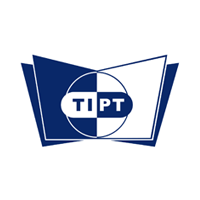
Generic drugs play an important role in Canada’s pharmaceutical industry. They also play an essential role in the health and wellbeing of many Canadians, who are able to receive relief and treatment for their medical conditions without paying the higher costs associated with name-brand drugs.
Recently, Health Canada has proposed certain amendments to the Food and Drug Regulations that could have an impact on how Canadian drug companies receive approval for generic versions of name-brand drugs.
If you’re studying for a career in pharmaceutical regulatory affairs – or if you’re considering enrolling and want to know more about Canada’s regulatory framework – these changes are sure to be of interest. Here’s a quick overview of why these changes matter and what you should know.
Generic Drugs Offer the Same Benefits as their Name-Brand Counterparts
A generic drug is a pharmaceutically equivalent copy of a name-brand drug, containing the same medicinal ingredients, in the same amount and in a similar dosage form. In order to be approved, companies must show that their generic drug is “bioequivalent” to the name-brand version, meaning that it acts the same way in the body, with the same level of safety and efficacy. This allows consumers to receive all of the benefits of the medications they need, without paying a premium for a name-brand equivalent.
When a company wants to sell a generic drug in Canada, it files a generic drug submission to Health Canada called an Abbreviated New Drug Submission (ANDS), containing the results of tests demonstrating bioequivalency, as well as information on the ingredients, how the drug will be made, how the drug will be tested during manufacturing, and more.

Proposed Changes Should Make it Easier to Have Generic Drugs Approved
The changes currently being proposed by Health Canada are intended to make it easier for companies to apply for generic status, by allowing generic drugs which use the same active ingredients as their brand-name counterparts but in different forms to apply for approval via ANDS – provided they meet all of the same criteria, and the difference does not affect the safety, quality, or efficacy of the medication.
According to Health Canada, which expects around 3% of generic drug applications to initially use the new approach, these amendments are expected to provide more clarity, consistency, transparency, and predictability for drug companies and pharmaceutical regulatory affairs professionals filing generic drug submissions, and also to help improve Canadians’ access to low-cost drugs.
Help Improve Access to Low-Cost Drugs with a Career in Pharmaceutical Regulatory Affairs
In pharmaceutical college, students can expand their knowledge of health care legislation and health care systems, as well as procedures and practices for regulating the development, manufacturing, quality assurance, and marketing of new drugs. They can also develop the necessary skills to develop, compile, and file the documentation required to gain approval for new pharmaceuticals – including low-cost generic drugs.
Health Canada’s proposed changes to generic drug approval highlight the importance of pharmaceutical regulatory affairs in Canada, and how professionals working in the industry can make a positive impact by helping low-cost generic drugs reach the market.

Are you interested in a career in pharmaceutical regulatory affairs?
Contact Toronto Institute of Pharmaceutical Technology to learn more about our regulatory affairs program.
